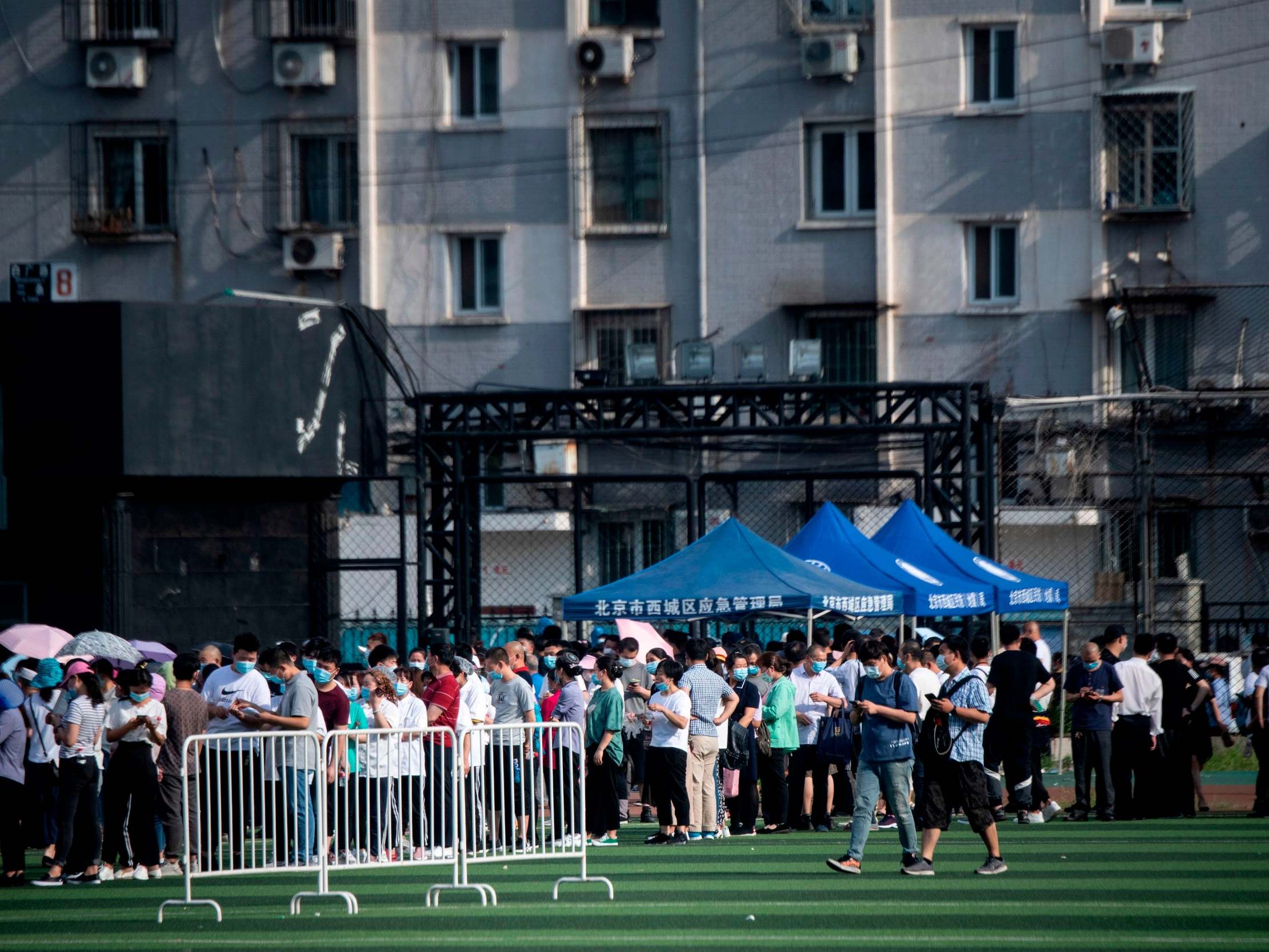Coronavirus: Parts of Beijing fenced off and new travel bans introduced as China grapples with new Covid-19 outbreak
27 new cases reported in country’s capital city, bringing total to 106 since Thursday
Your support helps us to tell the story
From reproductive rights to climate change to Big Tech, The Independent is on the ground when the story is developing. Whether it's investigating the financials of Elon Musk's pro-Trump PAC or producing our latest documentary, 'The A Word', which shines a light on the American women fighting for reproductive rights, we know how important it is to parse out the facts from the messaging.
At such a critical moment in US history, we need reporters on the ground. Your donation allows us to keep sending journalists to speak to both sides of the story.
The Independent is trusted by Americans across the entire political spectrum. And unlike many other quality news outlets, we choose not to lock Americans out of our reporting and analysis with paywalls. We believe quality journalism should be available to everyone, paid for by those who can afford it.
Your support makes all the difference.Parts of Beijing have been fenced off and new travel bans imposed as China rushes to stop a fresh coronavirus outbreak in the capital.
The city has gone into “wartime” mode in some areas, where neighbourhoods have been fenced off with 24-hour security checkpoints.
People most at risk of having come into contact with the virus have been banned from leaving the city, while public transport services have been suspended or reduced.
The financial hub of Shanghai has also demanded some travellers from Beijing be quarantined for 14 days.
It comes as China reported 40 more coronavirus infections nationwide on Monday, 27 of them in Beijing, bringing the city’s total to 106 since Thursday.
The new outbreak in Beijing is believed to have started at the Xinfadi market in the city’s southwestern Fengtai district, where thousands of tonnes of vegetables, fruit and meat change hands each day.
Chinese media reports said salmon had been pulled from shelves in 14 cities including Beijing after the virus was found in a sample taken from a salmon chopping board at Xinfadi market.
However experts have expressed doubt the virus could be spread via food supplies.
People lined up around the city for a mass testing campaign targeting anyone who visited the market in the past two weeks or come into contact with them.
About 9,000 workers at the market have already been tested.

As of Monday, Beijing had designated 22 neighbourhoods as medium-risk areas, requiring them to subject people entering to temperature checks and registration.
So-called high-risk groups in Beijing, including people who are close contacts of confirmed cases, are not allowed to leave the city, state media reported, citing municipal officials.
All outbound taxi and car-hailing services have been suspended, along with some bus routes.
The outbreak, which is the most serious coronavirus flare-up since February, has stoked fears of a second wave of infections.
The novel coronavirus was first identified in December at a seafood market in Wuhan, capital of the central Chinese province of Hubei, and has since spread around the world, infecting more than 8 million people and killing more than 436,000.
Additional reporting by Reuters

Join our commenting forum
Join thought-provoking conversations, follow other Independent readers and see their replies
Comments